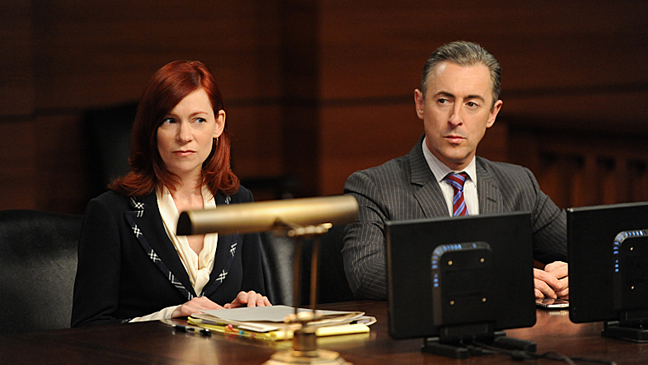
The news hits the internet like a perfectly curated, slightly unsettling sponsored post: "Elsbeth Season 3 Casts Julia Fox as a Grief Influencer: Everything We Know So Far." The headline alone is a stroke of speculative genius, a perfectly coiled spring of comedic potential and biting social commentary, begging for an illustrative unpackaging. While purely hypothetical, the mere idea of this casting is so potent, so deeply resonant with both the quirky charm of Elsbeth and the disruptive essence of Julia Fox, that it feels less like a rumor and more like an inevitable, brilliant destiny.
Let's first anchor ourselves in the world of Elsbeth. Born from the beloved Good Wife and Good Fight universe, Elsbeth stands on its own as a whimsical, yet sharp, procedural. It thrives on the delightful eccentricity of its protagonist, Elsbeth Tascioni, a lawyer whose seemingly naive and scattered demeanor hides a razor-sharp intellect and an uncanny ability to spot the vital, often overlooked, detail. The show is a visual feast of New York City's peculiar characters and hidden corners, a refreshing departure from grim realism, embracing instead a vibrant, almost theatrical reality where crime solving is less about dark shadows and more about brightly lit absurdities. Its format, revealing the killer at the outset, allows the audience to revel in Elsbeth's unique journey of discovery, rather than just the whodunit.
Now, consider Julia Fox. She is not just an actress; she is a walking, talking, avant-garde art installation. Since her breakout in Uncut Gems, Fox has cultivated a public persona that is both intensely authentic and undeniably performative. She is a fashion icon who defies convention, a social commentator who speaks with raw, unfiltered conviction, and an internet phenomenon whose every utterance or outfit becomes meme fodder. Her entire public persona blurs the lines between reality and curated spectacle, art and life. She embodies a modern celebrity that understands the internet as both a stage and a mirror.
The convergence point, the nexus of this hypothetical brilliance, is the role: a "Grief Influencer." The concept itself is a darkly comedic oxymoron, a disturbing reflection of our hyper-connected, yet often disconnected, society. In an era where every emotion, every milestone, every vulnerability is a potential commodity, "grief influencing" emerges as the apex of performative authenticity. It’s the monetization of pain, the curation of sorrow, the building of parasocial relationships predicated on shared, often vicarious, bereavement. It speaks to a profound human need for connection and understanding in loss, twisted by the transactional nature of the digital economy.
The casting of Julia Fox in such a role wouldn't just be stunt casting; it would be an alchemical fusion. Fox's inherent understanding of internet culture, her comfort with theatricality, and her ability to command attention while simultaneously challenging traditional notions of beauty and behavior, make her the perfect vessel for a character who commodifies the most sacred of human experiences. She could embody the alluring, yet unsettling, charisma required to build a following around shared heartache.
Everything We Know So Far (or, rather, Everything We Can Dream Up About This Brilliant Premise):
-
The Character: Let's imagine Julia Fox steps into the platform heels of "Ophelia Shade" (a nod to tragic Shakespearean figures, with a modern, edgy twist). Ophelia isn't just an influencer; she's a guru. Her feed is a carefully curated tableau of melancholic beauty: artfully arranged wilted flowers, tear-streaked selfies bathed in soft, ethereal light, poetic captions on loss and resilience, often accompanied by links to her "Sacred Sorrow" subscription box or her downloadable "Grief Journey Affirmation Cards." Her followers, "The Weepers," hang on her every word, finding solace and community in her highly aestheticized pain.
-
The Crime: The twist, of course, comes when one of Ophelia's most devoted "grief-mates"—a super-fan who has invested heavily in Ophelia's brand of spiritual bereavement—is found dead. Was it suicide, a tragic overdose, or something far more sinister? The victim's last post was a cryptic message hinting at a profound disillusionment with Ophelia's teachings, possibly even an accusation of exploitation.
-
Elsbeth's Investigation: Elsbeth, with her signature wide-eyed wonder and razor-sharp intellect, will wade into this emotionally charged, algorithm-driven world. Imagine her attempting to decipher the nuances of "trauma-dumping" in a public forum, or trying to understand the motivation behind "sympathy clicks." Her literal-mindedness will clash hilariously with Ophelia Shade's performative reality. Elsbeth will be looking for facts in a world built on feelings, seeking truth amidst a carefully constructed narrative.
-
Thematic Goldmine: The episode would be a treasure trove of social commentary. It would explore:
- Authenticity vs. Performance: How much of Ophelia's grief is real, and how much is meticulously crafted content? Does it even matter to her followers?
- The Commodification of Emotion: Where do we draw the line between sharing and selling our vulnerability?
- Parasocial Relationships: The intense, one-sided bonds formed between influencers and their followers, and the potential for manipulation and disillusionment.
- Mental Health in the Digital Age: The dangers of seeking genuine support in performative online spaces.
-
The Visuals: Picture Elsbeth, in her vibrant, mismatched outfits, navigating Ophelia's minimalist, yet highly stylized, loft, filled with crystals, muted tones, and the hum of ring lights. The contrast between Elsbeth's tangible reality and Ophelia's digital illusion would be visually arresting and conceptually rich.
The imagined casting of Julia Fox as a grief influencer in Elsbeth Season 3 isn't just exciting; it's a stroke of genius. It encapsulates everything that makes Elsbeth compelling: its ability to blend quirky humor with incisive social commentary, its love for unique New York characters, and its fearless dive into the absurdities of modern life. It promises an episode that is not only entertaining but thought-provoking, a mirror held up to our digital selves, reflecting the beautiful, the bizarre, and the sometimes tragic ways we seek to connect and cope in the algorithmic echo chamber. Let's hope this hypothetical becomes a very real, very brilliant, television event.
